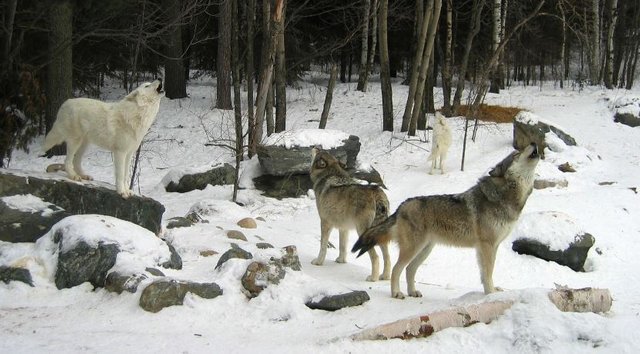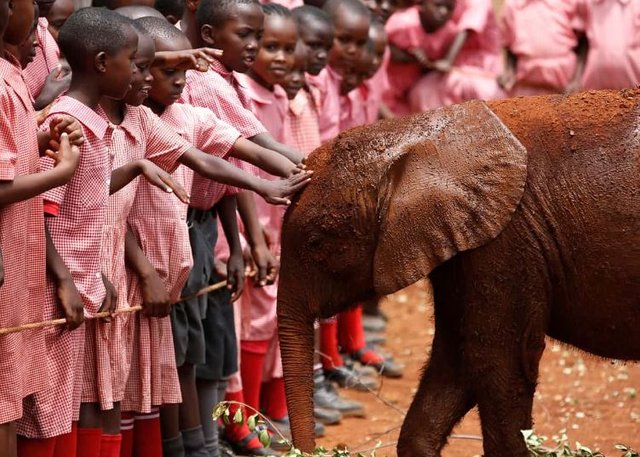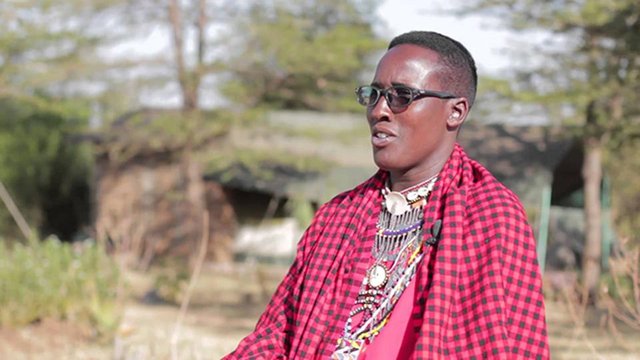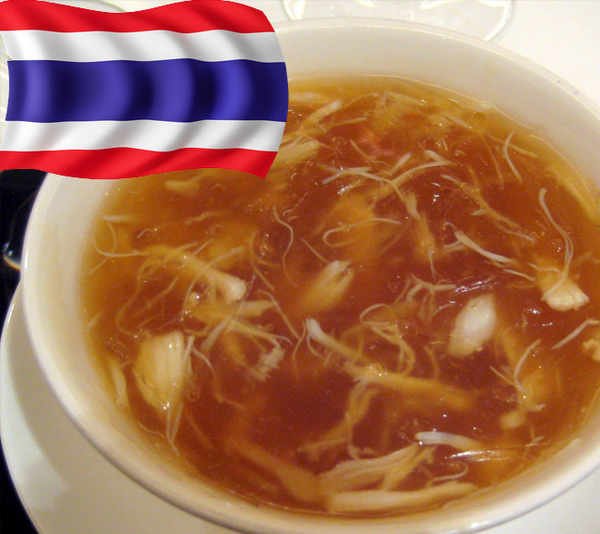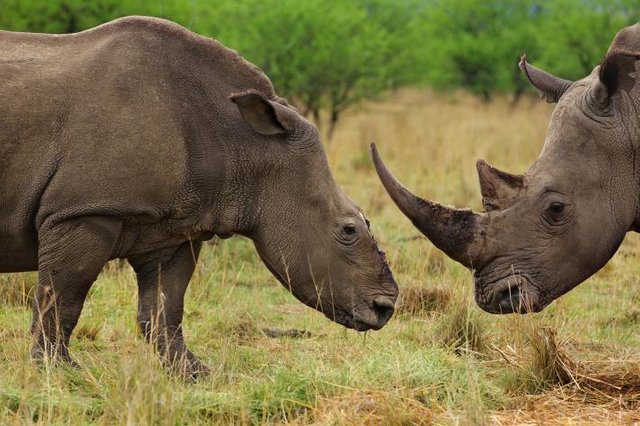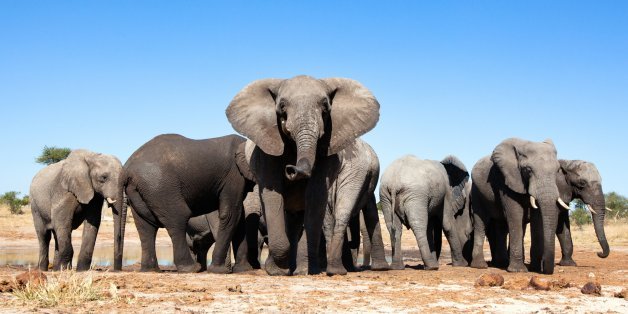Great Lakes Gray Wolves' Spot Safe On Endangered Species List — For Now
Gray wolves in the Great Lakes region should keep their spot on the endangered species list, the U.S. Circuit Court of Appeals in Washington, D.C., ruled Tuesday.
The ruling upholds a 2014 federal judge's decision that the U.S. Fish and Wildlife Service was wrong to have taken the gray wolf off the list in 2011, citing its rebounding population.
Being on the endangered species list means hunting restrictions, habitat preservation and federal dollars used for protecting the animal.
But managing the gray wolf population in the region has been a source of controversy and disagreement for years; it's has been removed and put back on the endangered species list several times since 2003.
Full story at http://n.pr/2tYVqpC
Source: http://www.npr.org
Saving the world's wildlife is not just 'a white person thing'
In a few days it will be the 18th anniversary of the death of Michael Werikhe, the enigmatic African conservationist. You don’t hear or read much of him these days.
Nicknamed “the Rhino Man” because his work and campaigns focused on the critically endangered black rhino, Werikhe’s main campaign tactic of choice was walking to raise awareness. His first walk, starting on Christmas Day 1982, took him from Mombasa to the Kenyan capital Nairobi – a distance of 484 kilometres – and lasted for 27 days. He later walked in East Africa, Europe and North America to raise awareness and money, raising nearly $1m and covering nearly 5,000km.
Were Werikhe alive now, he would be shattered by the state of the African rhino. Of Africa’s five subspecies of rhinos, one has been declared extinct in the last two years. Of the four remaining subspecies, total numbers are around 24,000, with an estimated four individuals lost to poaching daily.
Other species are doing just as badly across the continent. Economic and population activities, combined with climate change, are hitting Africa’s wildlife and wildlands hard, and the continent is seeing devastating losses of its unique wildlife heritage.
Full story at http://bit.ly/2vnZaEA
Source: The Guardian
This Inventive Safari Camp Uses Collaboration To Invest In Kenya's Maasai Community And Wildlife
From May into June 2017, I was fortunate enough to travel to the Maasai Mara in Kenya to work alongside Nelson Reiyia and his wife Margaret Reiyia Koshal, partnering with the local women of their Maasai community for ethical fashion production training and execution.
Nelson and I decided it would be impactful to work with the women of his tribe, as the Maasai are possibly one if the most globally recognized tribes in Africa, who are distinguished by their red plaid shukas, and colorful, intricately hand beaded jewelry and accessories; a craft and tradition passed on from mother to daughter for generations.
The fashion industry has had a long time love affair with the Maasai tribe, with global brands like Louis Vuitton building entire collections based on the tribe's aesthetic. In this 2013 article, the BBC noted there were over 800 companies around the world selling Maasai branded products, or products inspired by the Maasai tribe. Unfortunately most of these companies did not reinvest into the Maasai people, whose image they are profiting from, driving the tribe to take legal steps to trademark their name in order to protect unjust pirating of their tribe and aesthetic.
Full story at http://bit.ly/2tZk3T5
Source: Forbes
MUSEVENI: Development, democracy key to environment
Kampala, Uganda| PPU | President Yoweri Museveni has said continued underdevelopment and lack of democracy are some of the challenges facing wildlife conservation in Africa.
The President was speaking on Wednesday at a press briefing held at Entebbe State House Entebbe to launch the Uganda Giant’s Conservation and Tourism Investment Forum. He said for countries to ensure conservation of the environment, there is need to lessen the pressure on national parks by investing more in industries and services.
“If you are to support conservation sustainably, you must help backward countries become modern because this will lessen people putting pressure on national parks,” he said.
The President said having a big population of people in agriculture is a characteristic of backward societies. He noted that developed countries, such as the United States, which is 3 million square miles and a population of over 300 million, has only 2% of that population in agriculture while the rest are in industry and services. He, therefore, stressed the need for organic metamorphosis of societies from peasantry.
Full story at http://bit.ly/2tZb706
Source: https://www.independent.co.ug
Thais' hunger for shark fin soup is leading to the animal's population decline
BANGKOK — More than half of Thais have eaten shark fin soup and plan to continue consuming the Asian delicacy in the future despite an "alarming" decline in the shark population, a wildlife group said on Tuesday.
A report released by WildAid, a U.S.-based conservation group, says that 100 million sharks are killed worldwide each year. Of that number, 73 million ended up in shark fin soup, leading to as much as a 98 percent decline in the global shark population since 2002.
In response to a high demand for the dish in Asia due to beliefs in its health benefits and association to social status, sharks have been caught solely to have their fins cut off, and dumped back into the sea. Without their fins, the animal was left to die.
According to WildAid's report titled "Shark Fin Demand in Thailand," Thailand is the world's biggest shark fin exporter, with more than 22,467 tonnes exported from the South-East Asian country between 2012 to 2016.
Full story at http://bit.ly/2tZlDUR
Source: http://www.chinapost.com.tw
Despite Ban, Rhino Horn Flooding Black Markets Across China
How do you disrupt the illicit rhino horn supply chain from Africa to Asia? That’s the question spurring a new investigation into rhino horn trafficking in China and Vietnam undertaken by the Elephant Action League (EAL), a Los Angeles-based conservation NGO.
Rhinos are being decimated by poaching. In South Africa, home to almost 80 percent of the world’s rhinos, more than a thousand have been slaughtered annually during the past four years. That’s 8,000 percent more than were killed a decade ago, in 2007. Last year rangers in Kruger National Park were called out to stop more than 2,800 incursions by poachers—roughly eight every day.
It has generally been thought that Vietnam is the main market for rhino horn, although little has been known about the traffickers and their links to countries of origin and transit. Until now, that is.
The EAL report confirms that much of the horn winds up in Asia—but that China, not Vietnam, is the black market behemoth.
Full story at http://bit.ly/2tZwlL4
Source: National Geographic
How You Can Help Stop The Ivory Trade
It’s fair to say that most of us know that ivory comes from elephant tusks. But, even today, not everyone knows or appreciates that to get the ivory the elephant dies in a horrific way. Each year, at least 20,000 elephants are cruelly slaughtered just for their tusks, just so someone can own a little bit of ivory.
Here in the UK, the situation that many people find themselves in is that they may be an unwilling ivory owner. They may have a bit of dead elephant on their mantelpiece, maybe a bit of dead elephant in their jewellery box, maybe a bit of dead elephant in their hallway. And, maybe, they don’t want it - they didn’t buy it, or they bought it before they knew the true cause and effect of buying ivory. But now they’re stuck with it - they don’t want to sell it as they don’t want to contribute to the trade or maybe because it was handed down to them and has some sentimental value, and after all, you can’t really just throw ivory in the bin. And, you know what? That’s completely fine.
But now the International Fund for Animal Welfare (IFAW) is helping resolve that very issue. IFAW has just launched a public ivory surrender, where members of the public keen to help protect elephants from further slaughter are being invited to surrender ivory that they own. Then IFAW will ensure it is professionally destroyed and taken out of circulation on their behalf. No longer will that ivory be able to be used to prop up the illegal market, no longer will it be at risk of being exported to fuel demand in Asia, no longer will it have a value, propping up the very false notion that ivory not attached to a magnificent elephant has any value whatsoever.
Full story at http://bit.ly/2tZ4uuz
Source: http://www.huffingtonpost.co.uk
Prepared by @SydesJokes
